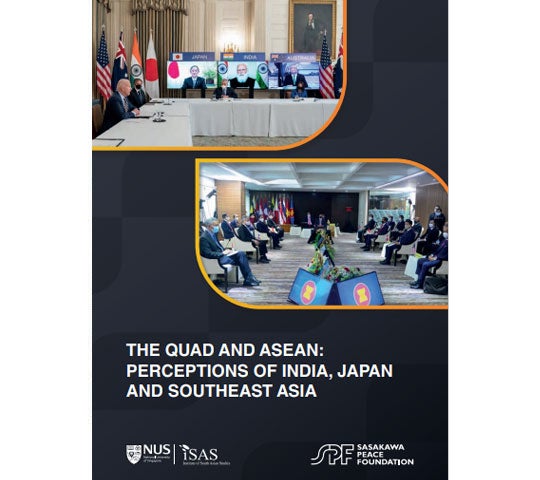The Quad and ASEAN: Perceptions of India, Japan and Southeast Asia
Yogesh Joshi, Ippeita Nishida, Nishant Rajeev
18 October 2021After the end of the Cold War, the Association of Southeast Asian Nations (ASEAN) emerged as the fulcrum around which the Indo-Pacific’s economic, political and diplomatic interactions took shape.
However, the rise of China stoked apprehensions in the region’s other major powers, such as India and Japan, which are now actively collaborating with the United States (US) to arrest China’s territorial assertiveness and diplomatic coercion. The emergence of the Quadrilateral Security Dialogue (Quad) as a new security institution in the region has grave consequences for ASEAN’s otherwise central role in the region’s geopolitics. Though both Japan and India constantly reaffirm ASEAN’s central role in shaping the region’s future, ASEAN’s divided loyalties between China and the US pose significant challenges to its credibility.
In analysing the perceptions of India and Japan on ASEAN and the Quad as well as ASEAN’s perception on the Quad, this Special Report examines the interactions between the two as regional institutions in the Indo-Pacific and the challenges that arise from their interactions.
-
 More From :
More From :
-
 Tags :
Tags :
-
 Download PDF
Download PDF



